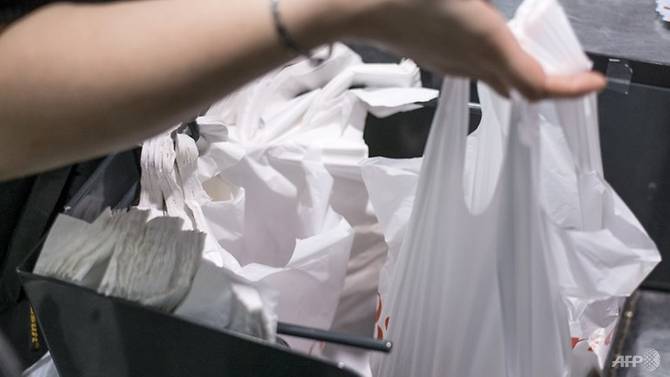By 2030, Yeo Bee Yin Wants Malaysia To Be A Zero Single-Use Plastic Nation
A road map will be released next month to achieve this goal.
Energy, Science, Technology, Environment, and Climate Change Minister Yeo Bee Yin wants Malaysia to be a zero single-use plastic nation by 2030
During her town hall session on single-use plastics yesterday, 24 September, Yeo shared that a 'Road map towards zero single-use plastic 2018-2030' will be introduced next month during the International Greentech and Ecoproducts Exhibition Malaysia (IGEM) in Kuala Lumpur.
"Malaysia is the eighth largest producer of plastic waste in the world. Plastic waste is the second biggest type of waste in the country after food," Yeo told attendees of the town hall, reported The Star.
"We need a proper roadmap with clear plans on how we can reduce and even better, eliminate the consumption of single-use plastic by 2030."
Yeo said the roadmap is not a policy, but rather a preparatory action
"The ministry doesn't want to kill the plastic manufacturers but prepare them to produce more eco-friendly products. The ministry wants to help plastic manufacturers to grow with alternative (products)," Yeo was reported as saying by Bernama.
The roadmap will cover a number of issues, including:
- by default, plastic straws will be given upon request by consumers,
- a policy on the charge for plastic bags at shops and where the money goes to, and
- list suggestions of more eco-friendly products for hydrocarbon-based plastic manufacturers in the country to switch to.
However, non-governmental organisations (NGOs) are urging the government to properly define the term "single-use plastic" before releasing the roadmap
While the term "single-use plastic" generally means disposable plastic that is only used once before being thrown away, the World Wildlife Fund (WWF) said the majority of the public did not understand what items fall under this category.
According to Free Malaysia Today, WWF-Malaysia marine policy manager Shantini Guna Rajan voiced out that without a distinct definition of the term, items which appeared to be waste could end up in a circular economy instead because people did not know how to categorise them.
Shantini also urged the government to curb the entry of plastic products into the market and to influence future product designs to ensure that new forms of single-use plastics are not introduced.
On 20 September, the Federal Territories Ministry announced a ban on plastic straws beginning 1 January, 2019
Federal Territories Ministry secretary-general Datuk Seri Adnan Mohd Ikhsan
Image via Mohd Fadli Hamzah/Berita HarianPlastic straws will join plastics bags and polystyrene food packaging, which were banned in September 2017.
According to The Star, Ministry secretary-general Datuk Seri Adnan Mohd Ikhsan said that businesses who continue to use plastic straws in 2019 will risk having their business licences terminated.
Following concerns raised by persons with disabilities, he later clarified that business operators who offer plastic straws to customers for medical reasons would not be penalised. The Star also reported that the full enforcement of the ban will only come into effect on 1 January, 2020.
While many alternatives to plastic straws exist, persons with varying disabilities all benefit from plastic straws being easily available
In a statement on its blog, the Malaysian Spinal Cord Injury Advocacy Association said, "Even though there are suggested alternatives to plastic straws like metal straws, composites and the like, there are other side effects like the risks of choking, injury, high costs, cannot be easily positioned, and not safe for hot food or drink."
Here's a breakdown of the various alternatives to plastic straws and why certain persons with disabilities cannot use it:


